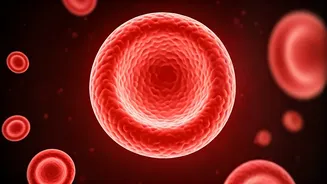Initial Subtle Clues
Vitamin B12 deficiency often presents with symptoms that can easily be overlooked or attributed to other causes. One of the earliest signs can be fatigue,
which may feel like persistent tiredness that doesn't improve with rest. Many individuals might also experience a lack of energy, making it difficult to complete daily tasks. This fatigue is frequently accompanied by a feeling of general weakness, leading to reduced physical endurance. Furthermore, a deficiency could manifest as cognitive difficulties. Individuals may struggle to concentrate or remember things. This could be due to a change in the brain function. They may also find it hard to focus, which can affect their performance at work or in studies. These subtle clues act as the first indications of a potential problem that necessitates further investigation.
Mental and Emotional Effects
Beyond physical symptoms, Vitamin B12 deficiency can significantly impact mental and emotional well-being. A common effect is the onset of depressive symptoms, where a person experiences persistent feelings of sadness, hopelessness, or a loss of interest in activities. These symptoms are often mistaken for standard depression and can be easily misdiagnosed. Similar to depression, cognitive impairment can worsen. It can cause memory issues and difficulty in thinking clearly. Individuals may have trouble with their critical thinking abilities. In addition to these issues, people can experience irritability or mood swings. This can result in increased emotional sensitivity and difficulty in managing stress. When emotional and psychological aspects are included, the impacts of a B12 deficiency become widespread, emphasizing the need for a comprehensive diagnosis.
Neurological Complications Arise
Severe or prolonged Vitamin B12 deficiency can lead to significant neurological complications. One notable symptom is neuropathy, which involves nerve damage. This can cause tingling, numbness, or burning sensations, often starting in the hands and feet. This nerve damage can affect a person’s mobility, making it hard for them to walk or coordinate movements. Another serious condition related to B12 deficiency is a deterioration in cognitive abilities, possibly including memory loss, confusion, and in advanced cases, dementia. These conditions result in the degradation of cognitive processes and memory-related functions. If the deficiency goes untreated, neurological damage may become irreversible, highlighting the importance of early detection and treatment.
Gastrointestinal and Physical
Vitamin B12 deficiency frequently influences the digestive system. A common symptom is digestive discomfort, such as bloating, constipation, or diarrhea, which can disrupt daily life. Other people may encounter loss of appetite, leading to weight loss and malnourishment. The body's ability to efficiently absorb nutrients may be compromised, contributing to various other health problems. Further physical manifestations include skin and hair changes. A person's skin may become pale or yellow (jaundice), while the hair may become brittle and lose its shine. The physical effects of this deficiency extend to oral health, sometimes causing a sore or inflamed tongue. These gastrointestinal and physical symptoms highlight the widespread effects of the deficiency and the necessity for early medical evaluation.
Diagnosis and Treatment
Diagnosing Vitamin B12 deficiency starts with a complete medical history, including symptom assessment. A blood test to measure Vitamin B12 levels is usually the next step in diagnosis. Based on the findings, additional tests may be conducted to determine the underlying cause of the deficiency. Once diagnosed, treatment typically involves Vitamin B12 supplementation. This can be achieved through injections, oral supplements, or dietary changes. Injections are often prescribed for individuals with absorption issues, ensuring the vitamin directly enters the bloodstream. Oral supplements are suitable for mild deficiencies or as a maintenance strategy. Dietary adjustments that involve foods rich in Vitamin B12, such as meat, fish, eggs, and dairy products, are essential for long-term health. Regularly monitoring Vitamin B12 levels helps adjust the treatment as needed.













